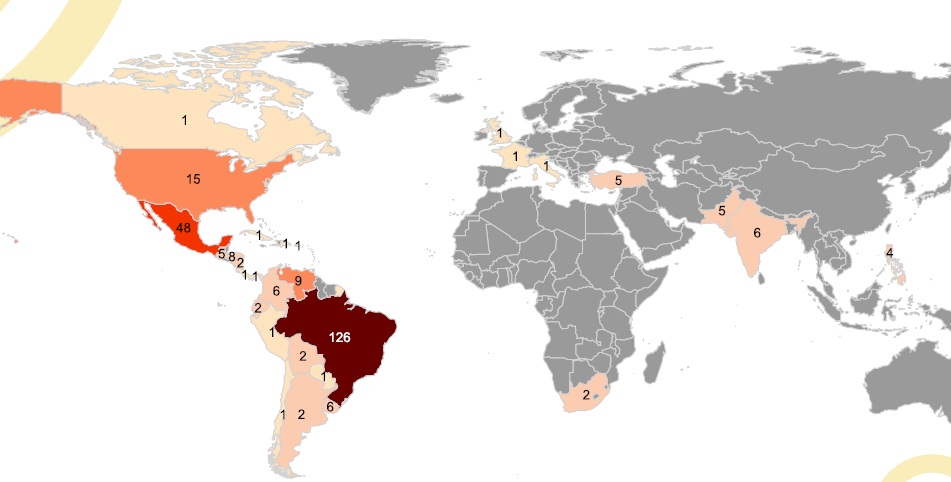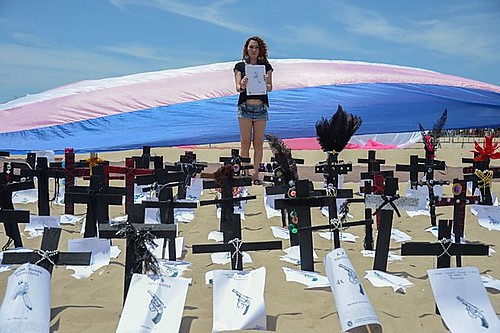RIO DE JANEIRO, BRAZIL – In the first eight months of 2020 alone, the murders of transgender people increased by 70% compared to the same period last year. In 2019, the number of rural conflicts affecting quilombola communities, indigenous and peasant peoples was 23% higher than in 2018.
Also last year, 24 environmental and human rights activists were murdered in Brazil, including ten indigenous people, making the country the world’s fourth most violent for these activists.

Such data, produced by several national and international organizations, was compiled and systematized in the new report of the Brazilian Committee of Human Rights Defenders (CBDDH) to examine social cause activism in Brazil between 2018 and the first half of 2020.
The report released on Tuesday found that the actions of individuals, communities, or groups fighting against the violation of basic rights are occurring in a scenario of escalating violence and lack of support from the federal government. Prepared by a panel of 42 civil society organizations and movements, it points out that the conditions of structural inequalities in society result in more intense violence against female activists, blacks, LGBTQI+ and traditional peoples.
Monica Sacramento, coordinator of the Criola NGO and who collaborated in the preparation of the report, pointed out that the murder of city councilor Marielle Franco 1,000 days ago is an example of this risk environment for the minorities who raise their voices.
“The presence of a cis-gendered heternormal racism governs this situation of inequality and systematic exclusion of the black population. As a result, double and triple forms of oppression are being built. To be a black woman means being much more likely to be a victim of violence, cases of deprivation of rights, and mortality,” said Monica.
Criticism of the Bolsonaro government
The report also states that the increase in violence against the activities of rights defenders is based on “the instigation to violence against specific segments of the population by President Jair Bolsonaro and his base”, which allegedly targer women, journalists, indigenous and quilombola communities.
As an illustration of such attacks by the President, the report refers to a study by Article 19 NGO that counted at least 449 violations of rights against journalists and communication professionals by Bolsonaro, his ministers or his relatives holding a public office between January 2019 and September 2020. According to the report, the disqualification of the human rights agenda and the work of NGOs by Bolsonaro “produces an environment of legitimacy to acts of violence by the population against these groups, and insecurity to activists”.

The advent of the Covid-19 pandemic is pointed out by the report as a factor that further exacerbated and exposed the inequality of access to basic rights among the Brazilian population. The report shows that the largest number of Covid-19 victims are found among the black population. It also reports an increase in cases of feminicide during quarantine, and stresses how the indigenous and quilombola communities are suffering from the lack of integrated efforts by the government.
This lack of public policies directed at these populations was highlighted by indigenous leader Sonia Guajajara, of the Brazilian Indigenous Peoples’ Articulation (APIB), when the report was released.
“Our struggle is for life. The conflicts and attacks that we have suffered for five centuries were enough, but now the pandemic has exacerbated inequality and violence against women and our peoples. It has exposed our suffering with the lack of access to public policies,” said Sonia.

